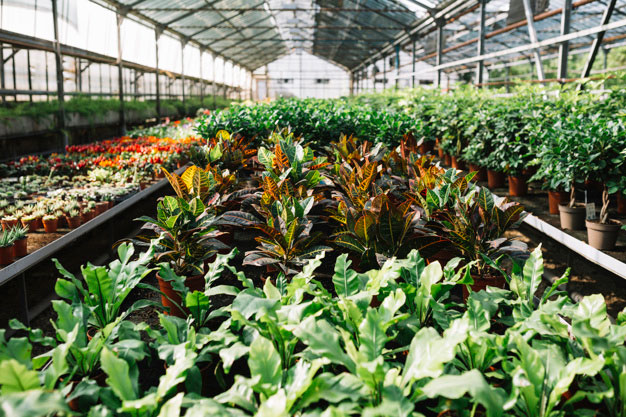Floriculture
The flower has acquired an unique position in our lives. Floriculture deals with growing or cultivation (large scale) of beautiful flowering plants.
The nature of horticulture

Horticulture may be described as the practice of growing plants in a relatively intensive manner. This contrasts with agriculture, which, in most Western European countries, relies on a high level of machinery use over an extensive area of land
Distribution of Life on Earth
The biosphere as usually defined is the thin outer layer of the earth capable of supporting life. It is probably best viewed as a global system that includes all life on earth and the physical environments in which living organisms exist and interact.
Chlorobacteria
The Chloroflexi (Chlorobacteria) are a class of bacteria that produce energy through photosynthesis. They make up the bulk of the filamentous anoxygenic phototrophs
Atomic spectroscopy
Atoms of certain metals will absorb and emit radiation of specific wavelengths when heated in a flame, in direct proportion to the number of atoms present.
Column Chromatography
Column chromatography is one of many forms of chromatography. Others include paper, thin-layer, gas, and HPLC. Most forms of chromatography use a 2-phase system to separate substances on the basis of some physical-chemical property.
Protein Synthesis
Protiens are polymers of amino acids joined by peptide bonds (proteins are therefore also known as polypeptides). The number and order of the amino acids contained in a particular protein are prescribed by the DNA sequence of that protein?s gene.
Alkaloids
Alkaloids are classified according to the amino acid that provides both the nitrogen atom and the fundamental portion of the alkaloid skeleton, and these are discussed in turn.
Structural bioinformatics
Structural bioinformatics is concerned with computational approaches to predict and analyse the spatial structure of proteins and nucleic acids.
Insect Armor
Most insects? tough exoskeletons protect their bodies from predators and from drying out. however, some insects?including young insects, such as caterpillars - have soft bodies. they benefit by adding an extra layer of protective armor.
Bioenergetics
An amalgamation of the term biological energetics, is the branch of biology and biochemistry that is concerned with how organisms extract energy from their environment and with how energy is used to fuel the myriad of life?s endergonic processes.
Ameboid Movement
Ameboid movement is a form of movement especially characteristic of amebas and other unicellular forms; it is also found in many wandering cells of metazoans, such as white blood cells, embryonic mesenchyme, and numerous other mobile cells that move throu
Germplasm theory
Germplasm theory of Weismann was a very significant advancement in our understanding of heredity, since this was for the first time that a distinction between hereditary and environmental variations could be made on a sound basis.
Kingdom Plantae
Plants appeared on land about 425 million years ago and the evolutionary history of the plant kingdom reflects increasing adaptation to the terrestrial environment. Plants have organs and organ systems.
Types of Mutations
Mutations are heritable changes in the genetic material that give rise to alternative forms of any gene. These alternate forms are called alleles. There are two broad types of mutations, those that affect the gene and those that affect whole chromosomes (
Types of Tissues
A tissue is a group of similar cells (together with associated cell products) specialized for the performance of a common function.




